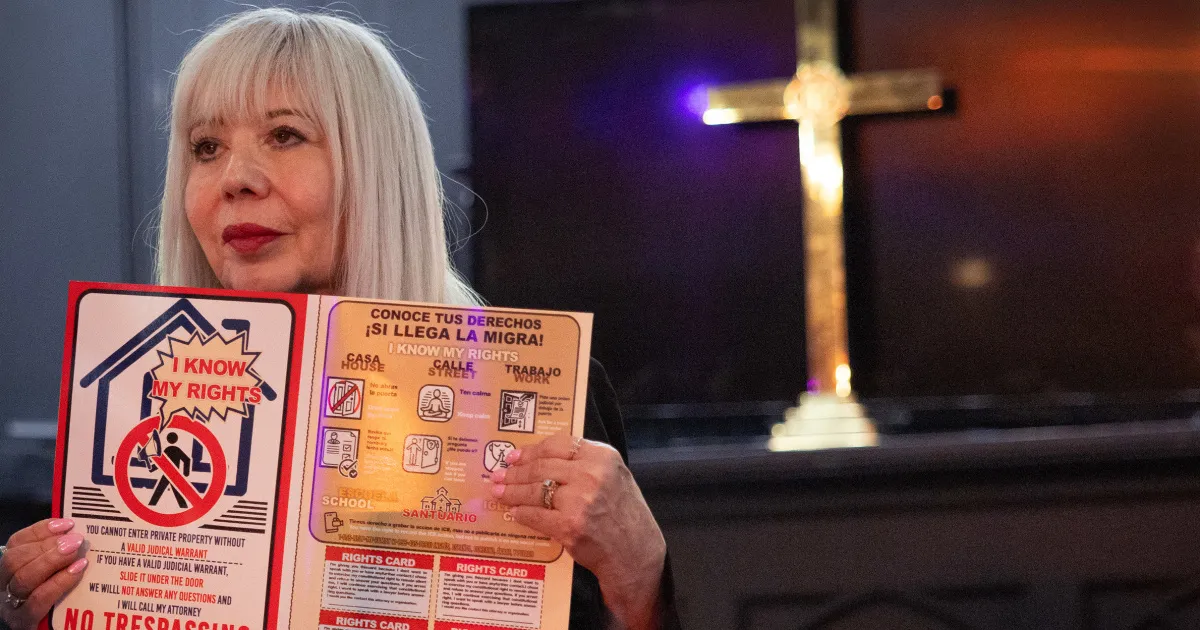
On Friday, a federal judge in Washington D.C. made a significant ruling regarding the enforcement of immigration policies at houses of worship. U.S. District Judge Dabney Friedrich denied a request to block immigration agents from conducting operations in these religious spaces, in a lawsuit brought forth by various religious groups opposing a new directive from the Trump administration.
The lawsuit was initiated by over two dozen Christian and Jewish organizations, representing millions of individuals across the nation. These groups argued that the new policy posed a threat to their religious freedom and the sanctity of places of worship. However, Judge Friedrich determined that the plaintiffs had not demonstrated sufficient legal harm to warrant a preliminary injunction against the enforcement actions.
In her ruling, Judge Friedrich stated, “At least at this juncture and on this record, the plaintiffs have not made the requisite showing of a ‘credible threat’ of enforcement.” She emphasized that the current evidence did not indicate that religious sites were being targeted specifically for immigration enforcement. This ruling is significant as it reflects the ongoing legal debates surrounding immigration policy and religious protections in the United States.
This controversial immigration enforcement policy was enacted on January 20, the first day of President Trump’s return to office. The new directive rescinded a policy previously established by the Department of Homeland Security, which limited immigration arrests in “protected areas” or “sensitive locations.” Under the new guidelines, field agents are permitted to use “common sense” and “discretion” to carry out enforcement operations in religious settings without needing prior supervisory approval.
Interestingly, this ruling contrasts with a decision made by a federal judge in Maryland earlier this year. In that case, U.S. District Judge Theodore Chang ruled against the Trump administration in a lawsuit led by a coalition of Quakers and other religious groups. However, Judge Chang's order was specific to those plaintiffs and did not set a precedent for wider application.
Additionally, a judge in Colorado sided with the Trump administration in another case, supporting the reversal of policies that had previously restricted immigration arrests in educational environments. These contrasting decisions highlight the ongoing legal complexities surrounding immigration enforcement and its intersection with religious rights.
The recent ruling by Judge Friedrich underscores the contentious nature of immigration policy under the Trump administration, particularly regarding its impact on religious communities. As legal battles continue, both the implications for houses of worship and the broader implications for immigration enforcement in the United States remain critical issues to watch.